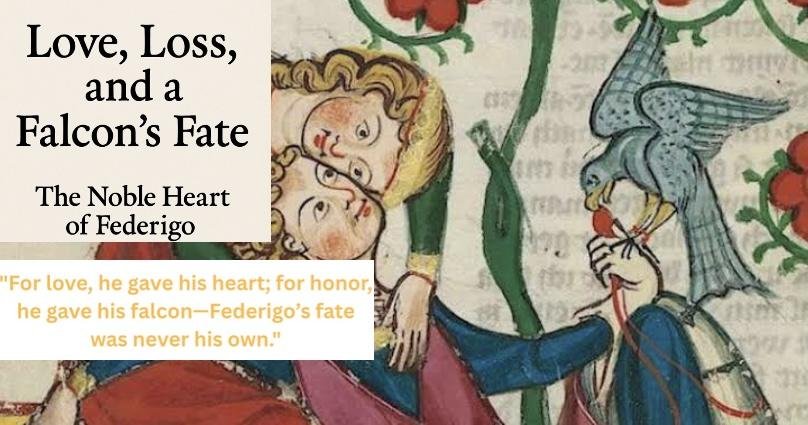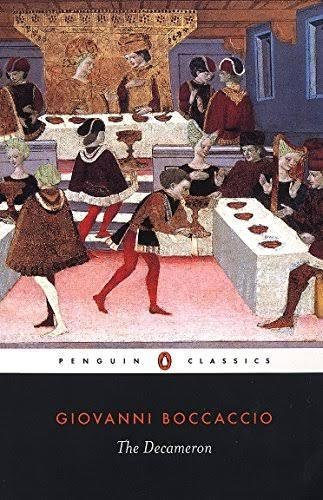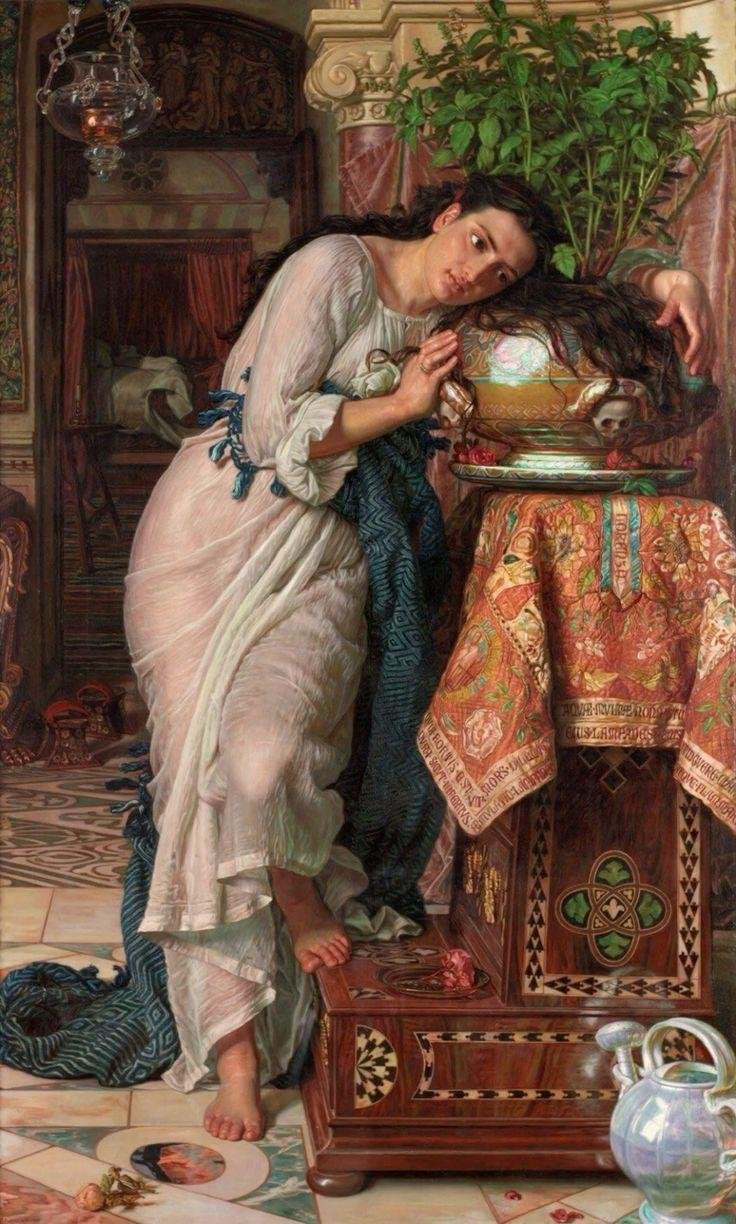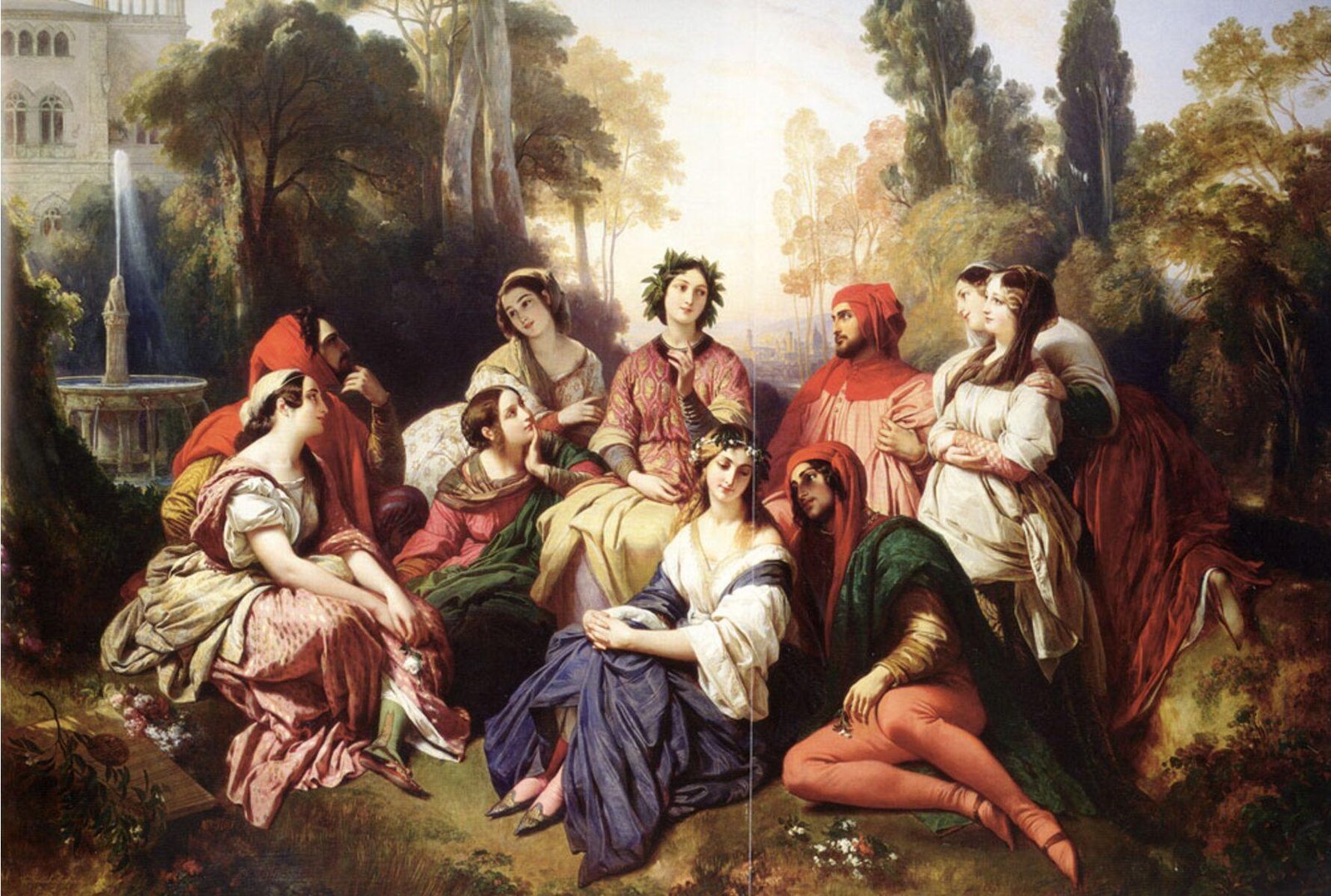Love, Loss and a Falcon’s Fate: The Noble Heart of Federigo

Title:
Love, Loss, and a Falcon’s Fate: The Noble Heart of Federigo
Introduction:
In Giovanni Boccaccio’s The Decameron, “Federigo and His Falcon” tells the story of a nobleman whose love and dignity lead him to a heartbreaking act of sacrifice. This tale, told on the ninth story of the fifth day, explores the themes of unrequited love, generosity, and moral irony. It stands out for its subtle critique of class, its portrayal of quiet nobility, and the unexpected reversal of fortune.
Summary:
Federigo degli Alberighi is a nobleman who squanders his fortune trying to win the love of a lady named Monna Giovanna. After losing everything, he retreats to a small farm with only his prized falcon for company. One day, Monna Giovanna—now a widow—visits him to request the falcon for her sick son, who believes he will recover if he can have it. Unaware of her true reason, Federigo, having nothing else to serve her, cooks the falcon as a meal for her visit. When she learns of this, she is moved by his sacrifice. Later, after her son dies, she marries Federigo, recognizing his noble spirit.
Analysis:
The tale reflects on how true nobility does not come from wealth or status, but from inner virtue. Federigo’s act of sacrificing the falcon—his last possession and a symbol of his pride and identity—demonstrates his love and his values. Boccaccio uses irony masterfully here: Federigo’s most generous act prevents him from fulfilling the very request Monna Giovanna came for, yet that same act wins her heart in the end.
The falcon itself functions as a powerful symbol. In medieval culture, falcons were emblems of nobility and control, and here it becomes the price of transformation. Federigo loses his falcon but gains love and honor. There’s also a gender reversal worth noting: Monna Giovanna holds the economic and social power after her husband’s death, while Federigo becomes the romanticized figure of emotional devotion, a role often reserved for women in literature.
Boccaccio subtly critiques the courtly love tradition by showing that performative acts of love (spending fortunes, boasting, etc.) are less meaningful than sincere sacrifice. This positions Federigo as a quietly revolutionary figure—noble not by birth, but by heart.
Personal Response:
What struck me most was the emotional restraint of the story. It’s tragic, but not melodramatic. Federigo doesn’t complain or beg—he simply gives what he can. His silent dignity felt more powerful than any grand gesture. I found the ending deeply satisfying because it rewards inner virtue over superficial wealth or power.
Conclusion:
“Federigo and His Falcon” remains a moving reflection on love, sacrifice, and human dignity. In a time of wealth-driven social systems, Boccaccio offers a tale where integrity and quiet suffering are more valuable than gold. For modern readers, this story reminds us that generosity and moral courage can define us far more than status or success.








